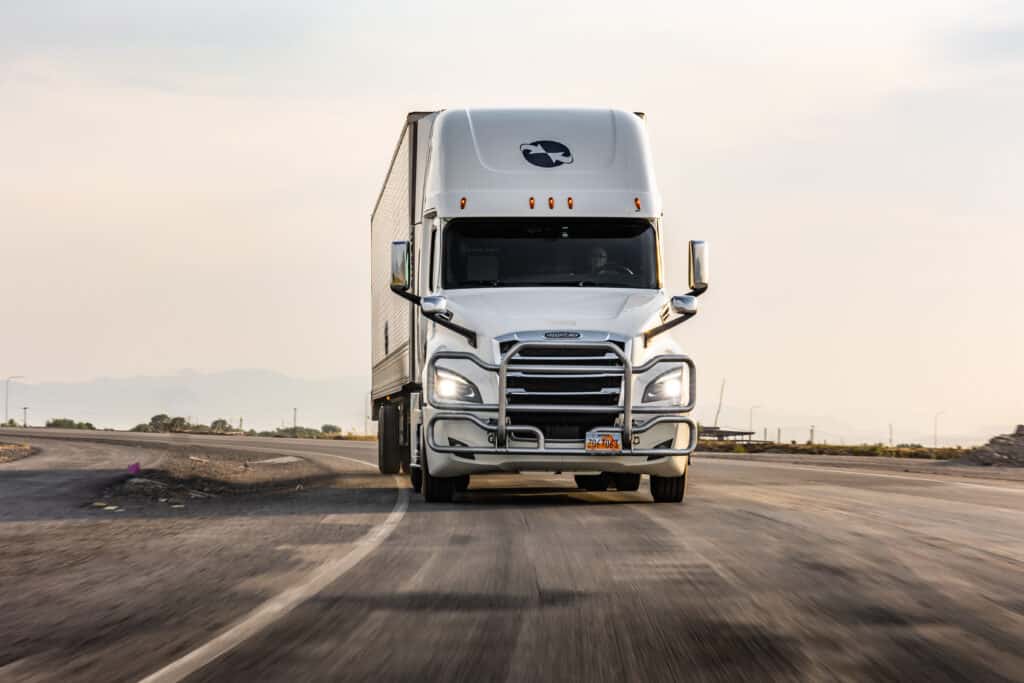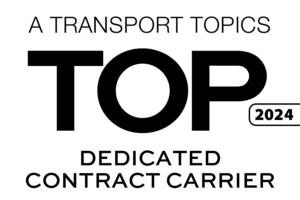
Efficient logistics are important for the success of businesses across various industries in today’s globalized economy. Choosing the right trucking partner is a key component of a robust logistics strategy.
Whether you’re a small e-commerce business or a large-scale manufacturer, selecting the appropriate trucking company can significantly impact your supply chain’s effectiveness, customer satisfaction, and bottom line. Choosing who to partner with is an important business decision, and there are a few key things to consider during the process.
This guide aims to provide shippers and businesses with essential considerations when making this crucial decision, equipping you with the right questions to ask in the process.
1. Services and Expertise
Not every shipping and logistics company fits every product, company, and route. Before starting the process of selecting a partner, it’s important to define your transportation needs clearly.
From the volume of goods transported to the frequency of shipments, the kind of cargo, and the geographical reach for distribution, each factor must be considered. Identifying the needs will help narrow down the options during your search and you will be most likely to successfully pick the trucking partner that is equipped to meet your specific needs.
2. Reliability and Reputation
The trucking company that you choose becomes an extension of your business. Reliability on a trucking partner is a non-negotiable. When researching potential companies, consider their track record for on-time deliveries, adherence to safety regulations, and responsiveness to inquiries and concerns.
To gather such information, check out online reviews, client testimonials, and industry certifications. Don’t rely only on the reviews listed on the company’s owned website. Look up reviews posted on other platforms, such as Google Reviews. These will provide valuable insights into a trucking company’s reliability and reputation.
3. Fleet, Equipment, and Technology
The quality and condition of a trucking company’s fleet and equipment can directly impact the efficiency and safety of shipments and the service the business provides to clients.
When choosing a trucking company, ask about the age and maintenance practices of their trucks and other specialized equipment relevant to your cargo. There needs to be a plan in place to keep their trucks upgraded and in the best conditions possible.
It’s also important to consider the technology used, such as modern tracking technology and GPS systems that provide real-time visibility into the status and location of the shipment. You will want to have real-time access to the location of the shipments, and this tool will not only help the shipping company efficiently handle your cargo, but it will also help you track it.
Consider how often the potential shipping company updates its technology, how it uses it, and how compatible it is with the technology currently used in your business.
4. The People
The people that make up the trucking company that you choose to partner with will determine the partnership’s success and service more than any promised service. When considering a trucking company, looking into their culture and support for their team is important.
Ask about the culture within the company, the resources available to their employees and their opportunities to train and stay current with new technologies and practices in the industry. You will want to work with happy and successful people who feel supported and take their jobs as seriously as they support a key part of your business.
5. Sustainability Practices
Evaluate potential trucking partners’ commitment to eco-friendly practices, such as fuel-efficient vehicles, alternative energy sources, and carbon footprint reduction initiatives. Partnering with environmentally responsible carriers not only aligns with corporate social responsibility goals but also reduces your ecological impact.
6. Compliance and Safety Standards
Compliance with regulatory requirements and adherence to rigorous safety standards are non-negotiable aspects of trucking operations. Ensure that any potential trucking partner holds all necessary licenses, permits, and insurance coverage. Moreover, inquire about their safety protocols, driver training programs, and accident prevention measures to mitigate risks and ensure the secure transportation of your goods.
7. Flexibility and Scalability
Choose a trucking partner that can grow and change with you. You need a company with the capacity and flexibility to scale its services as your business changes. Discuss anticipated growth and seasonal variations. Assess their ability to accommodate your evolving needs without compromising service quality and reliability.
8. Cost and Pricing Structure
While cost should not be the determinator in selecting a trucking partner, it is a very significant factor. Focus not only on the dollar sign but, instead, on the value proposition, considering service quality, reliability, and customer support.
When requesting a quote, request a detailed breakdown to ensure transparency regarding pricing structures, additional fees, and potential discounts and incentives. Ask for further details if those are not listed in the quote requested. The more details you have on pricing, the more tools you will have to decide.
9. Communication and Customer Service
If you run into any issues or require immediate assistance, you will want to be able to communicate effectively and promptly with your trucking company. Effective communication is vital for a successful partnership with a trucking company.
Choose a provider that prioritizes clear and open lines of communication, providing dedicated account managers or customer service representatives to address your queries and concerns promptly. Proactive communication regarding shipment status updates, delays, and unforeseen issues fosters trust and transparency in the relationship.
Choosing The Right Trucking Partner
Asking the right questions and choosing the right trucking partner is a strategic decision that can impact your business’s efficiency, reliability, and overall success.
By taking the time to carefully evaluate factors such as reliability, reputation, fleet capabilities, compliance standards, scalability, pricing, communication, and environmental responsibility, shippers and businesses can make informed decisions that optimize their supply chain operations and drive sustainable growth in the long term.
Remember, selecting a trucking partner is not merely a transactional decision but a strategic partnership that can contribute to your business’s competitive edge in the marketplace.

